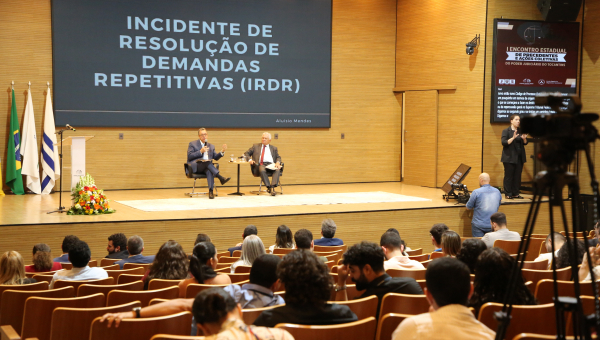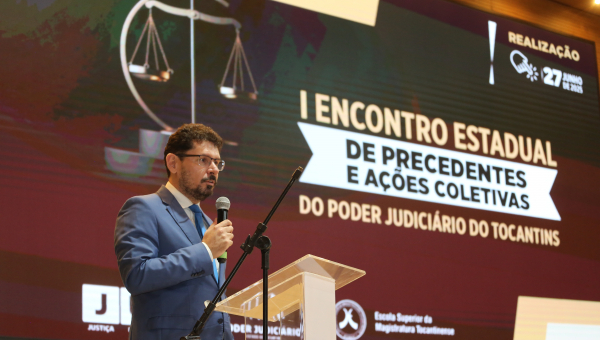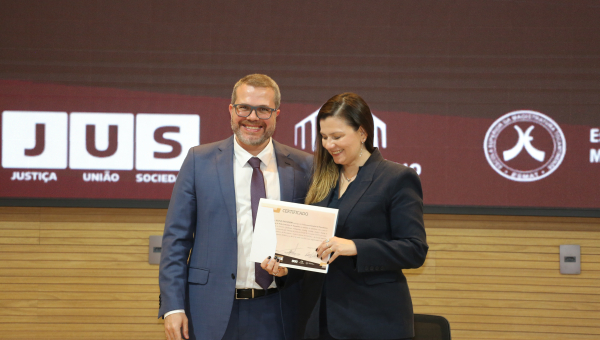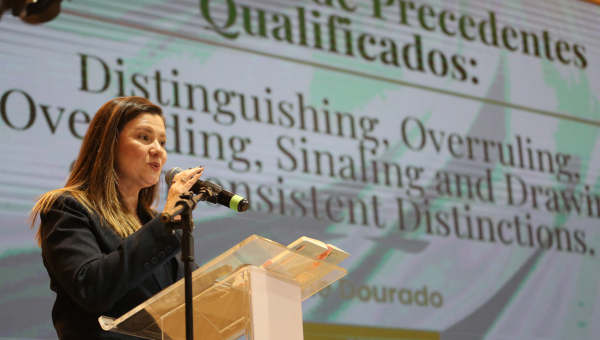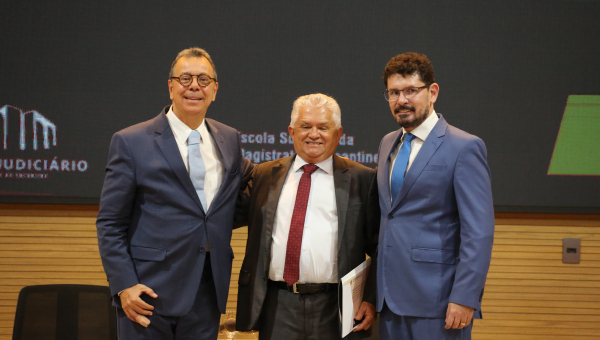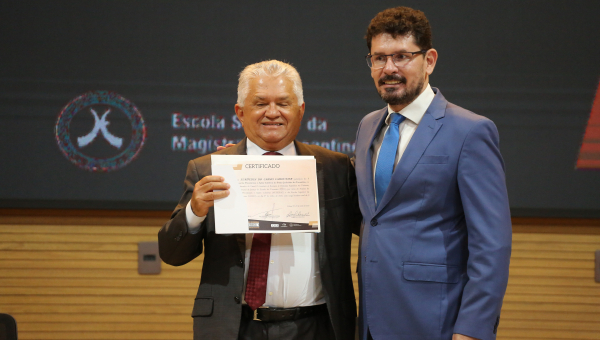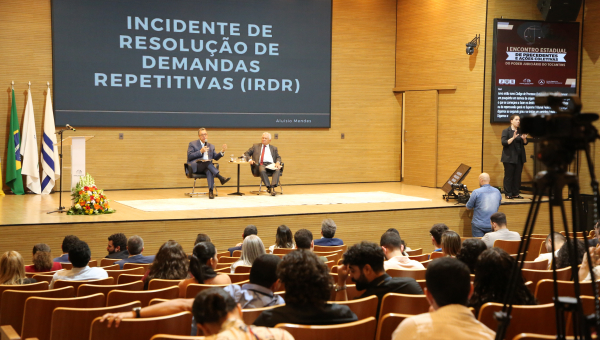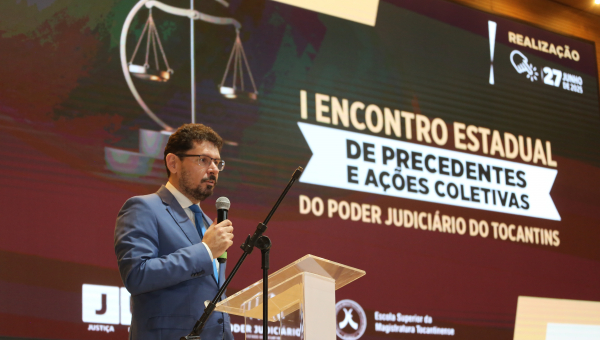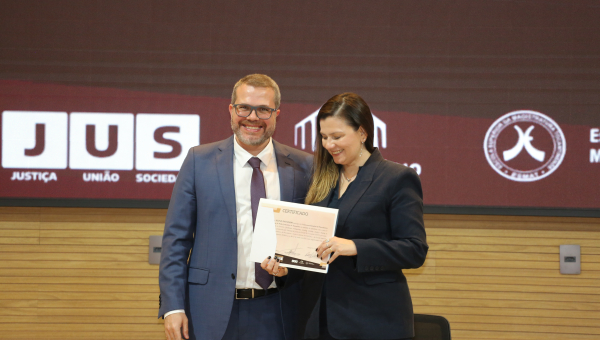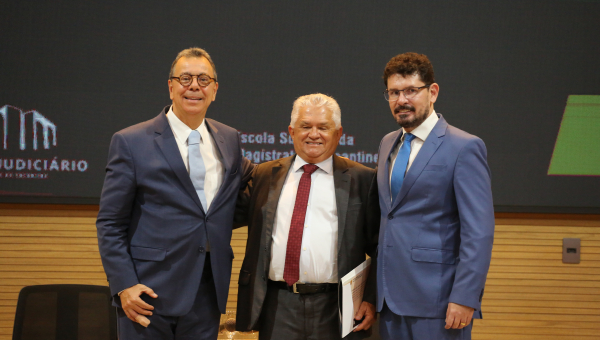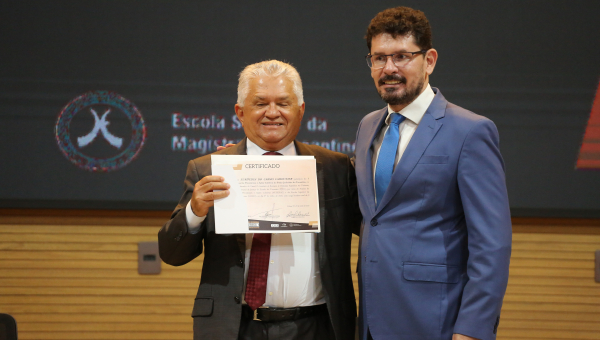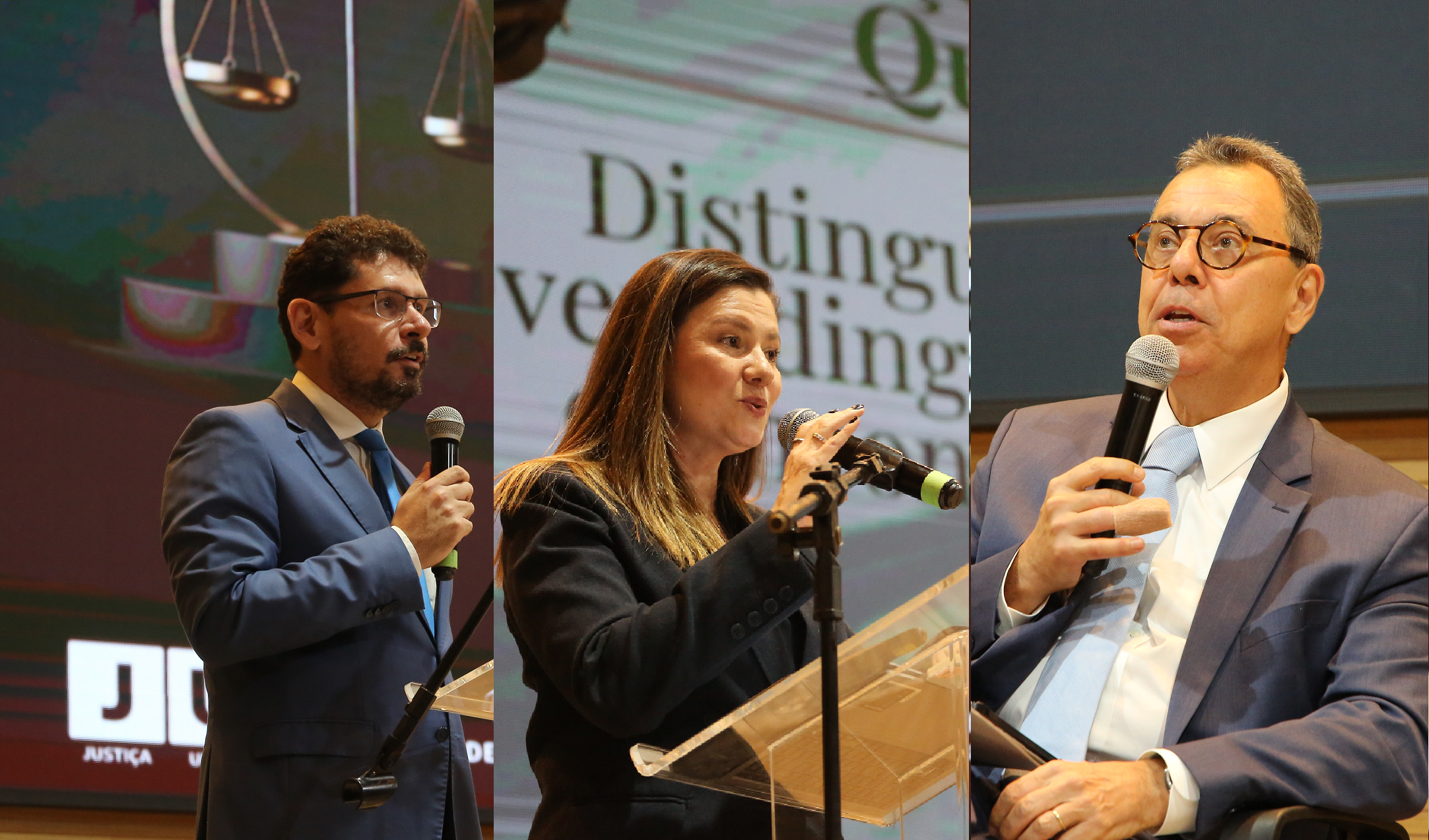
The Brazilian Judicial System regulates itself when it comes to the overturning of previously consolidated judgments, by providing mechanisms and techniques for overturning qualified precedents. This is the essential summary of the closing lecture of the 1st State Meeting on Precedents and Collective Actions of the Judiciary of the state of Tocantins, held on Friday (June 27th) in the auditorium of the Court of Justice of the State of Tocantins (TJTO).
Aline Dourado, an advisor to the Secretariat of Precedents of the Federal Supreme Court (STF), presented a panel on the system for overcoming qualified precedents, under the mediation of Judge Marcelo Laurito Paro, assistant judge of the General Internal Affairs of Justice (CGJUS).
Speaking about reviewing, canceling and effectively overruling precedents, the advisor gave an overview of theoretical issues, ONLINE interactions and practical examples from the STF in overruling consolidated judgments. When explaining the Brazilian scenario of precedents, she cited, from the Supreme Court, around 1,400 issues of general repercussion; 7,804 Direct Actions of Unconstitutionality (ADIs); 1,363 repetitive issues in the Superior Court of Justice; 21 Incidents of Assumption of Jurisdiction (IACs); 154 Incidents of Repetitive Appeals (IRRs) in the TST; as well as 5 Incidents of Resolution of Repetitive Demands (IRDRs) and 9 IACs in the Court of Justice of the State of Tocantins.
The advisor presented the expressions distinguishing, overruling, overriding, signaling and drawing of inconsistent distinctions as mechanisms for overruling precedents, in line with the rules of the Code of Civil Procedure and the internal regulations of the Superior Court of Justice (RISTJ), the Superior Labor Court (RITST) and the TJTO (RITJTO).
Incidents indicate legal modernity
A little earlier, federal Justice Aluisio Mendes, from the Federal Regional Court of the 2nd Region, spoke about the Incidents for the Resolution of Repetitive Demands (IRDRs), in a panel coordinated by Justice Eurípedes Lamounier, from the TJTO.
For the justice, the incidents of resolution of repetitive demands are current, modern issues and need to be strengthened by the courts, as they have a massive impact on society. "Jurisdiction used to be pulverized into individual cases; today, we have a mass society. So we have many cases that are similar: consumers, pensioners, civil servers, tax cases. The courts today have new tools, which are these instruments: the incident of resolution of repetitive demands; and also the incident of assumption of jurisdiction," he said.
According to the speaker, the two incidents are fundamental tools for the courts. “They are instruments made available to the courts to guarantee the standardization of jurisprudence and thus improve society, legal certainty, isonomy and predictability.”
“It's a topic that needs to be strengthened and, by holding the First Meeting, the Court of Justice of the State of Tocantins demonstrated its commitment to a contemporary, up-to-date, modern and efficient jurisdiction,” he concluded.




